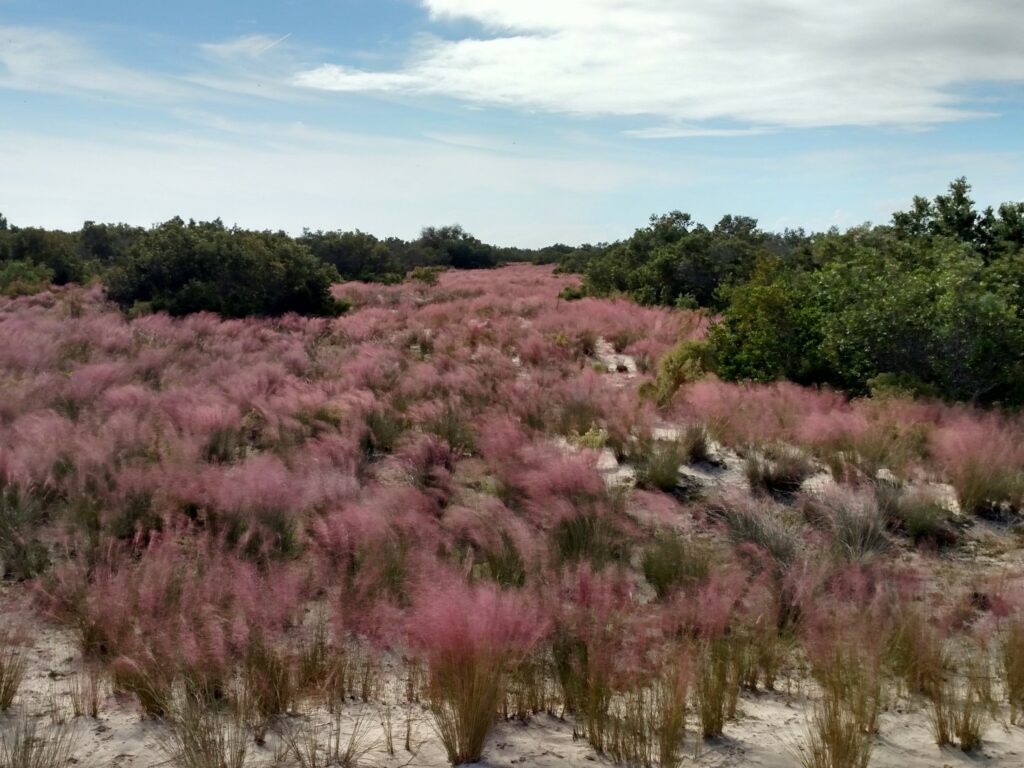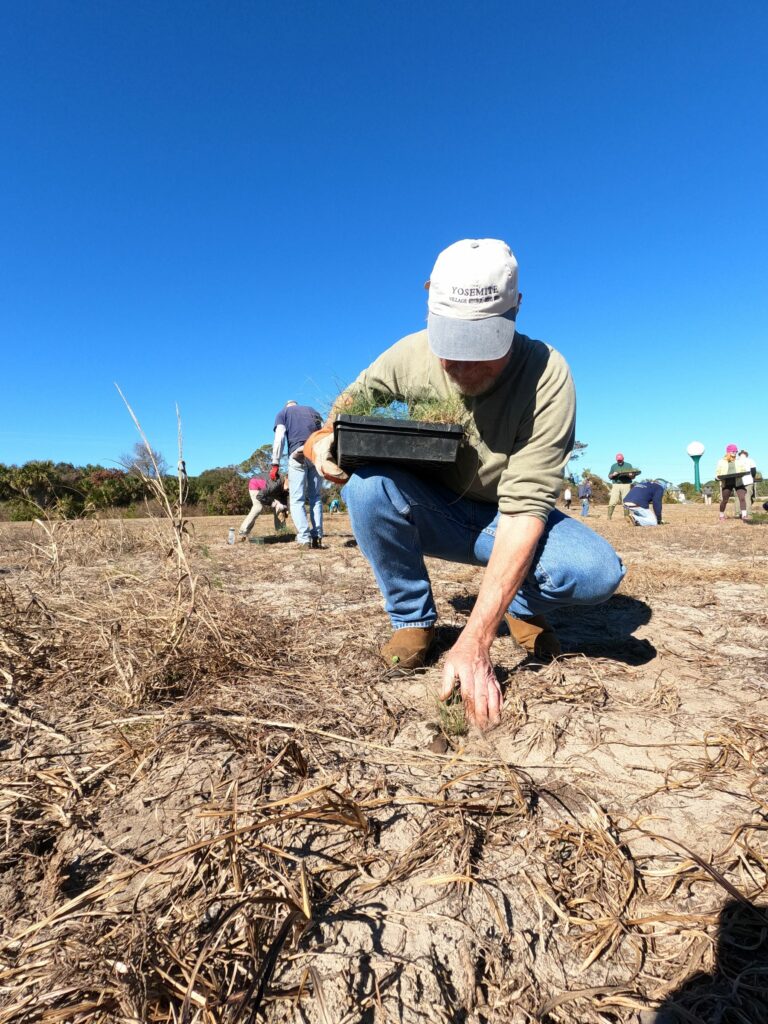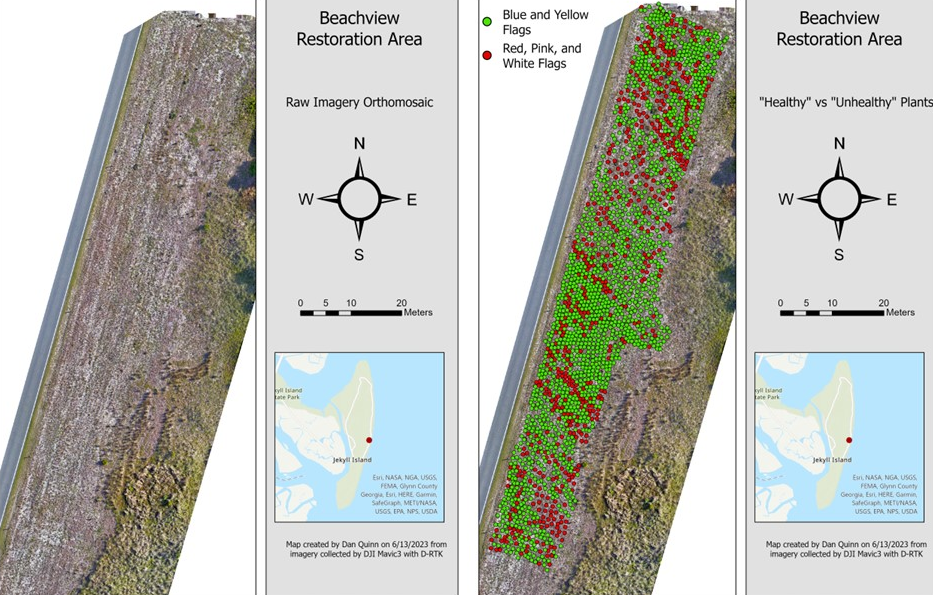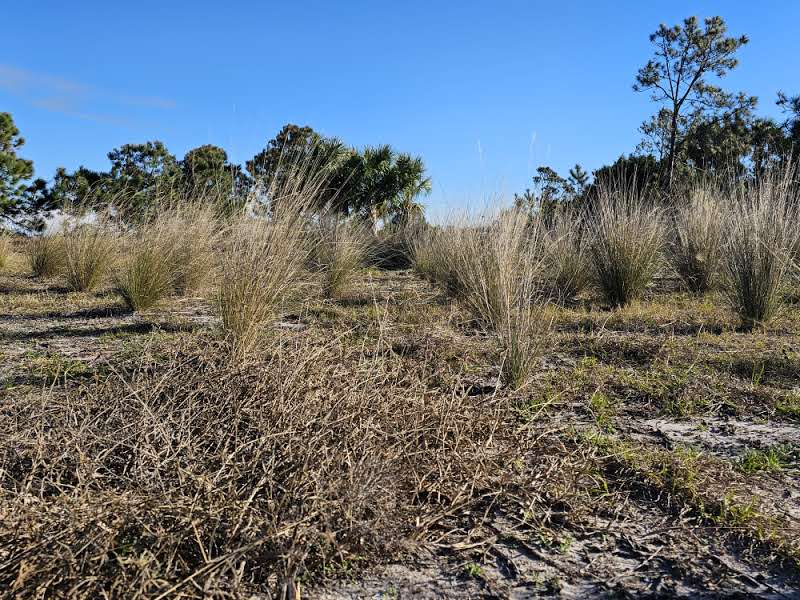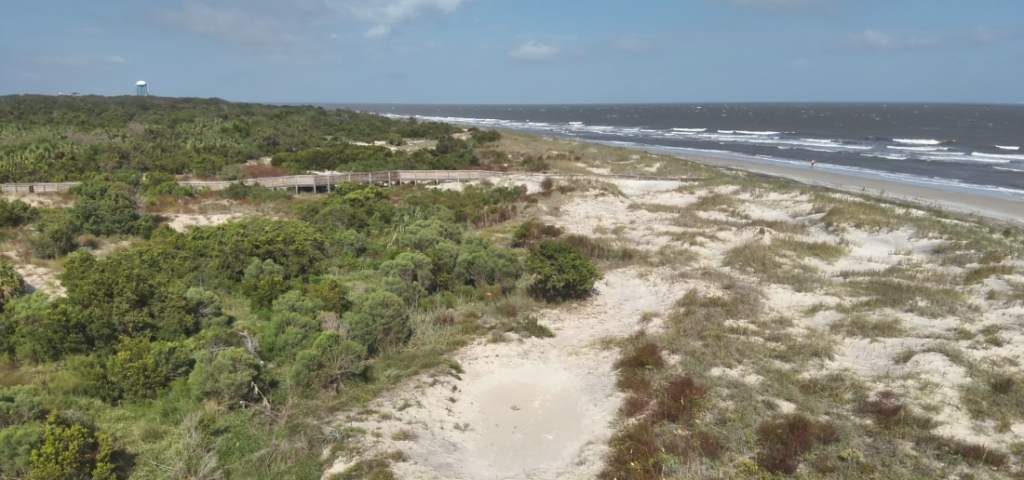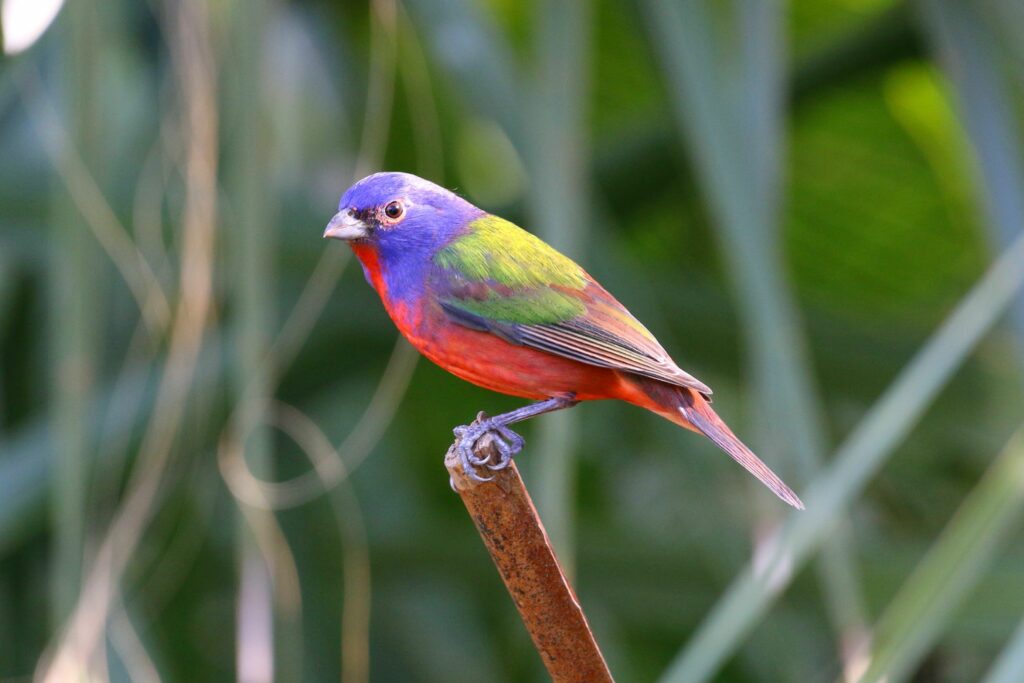by Joseph Colbert, JIA Wildlife Biologist & Yank Moore, JIA Director of Conservation
Muhly grass, also known as sweetgrass, is a welcome sight for visitors coming to Jekyll Island, especially in the fall when the lush pink blooms sway in the coastal breeze. This visual experience has taken years of effort to develop, as the natural pockets of Muhly grass on Jekyll are at risk of being lost. The habitat, often referred to as a Muhly Meadow or Maritime Grassland, has immense value serving as home to a variety of animals including birds, mammals, and insects along with significant cultural value as a staple of the Gullah Geechee community. The JIA Conservation Department realized the importance of Muhly grass-developed partnerships and devoted time to saving this community.
In 2022, one of those partners, Birds Georgia, formerly Georgia Audubon, assisting in securing critical funding to initiate the process of restoring Muhly grass to a significant stretch along Beachview Drive. This location was chosen due to its prominence just north of Oceanview Beach Park, and to allow this magnificent habitat’s return to the landscape to be witnessed by all. With the help of volunteers from the community, Birds Georgia, and the Garden Club of Jekyll Island, over 30,000 plugs, or seedlings, were planted in early 2023. A restoration of this scale had never been attempted before with a Muhly Meadow, so there was strong interest and anticipation felt while waiting for the results.
As anticipated, the plants are growing nicely, with a success rate of 83% of plugs surviving the first 8 months! Most experienced their first blooming this past fall after being in the ground for less than a year. The success of this restoration far exceeded expectations and has now set the standard for reestablishing this community across the Jekyll landscape.
This validation of success has now led to the initiation of the “Acres & Acres of Muhly Grass” project. This campaign will expand the scope of previous efforts, into natural areas on the island, “rescuing” this imperiled habitat so it can flourish for years to come. Muhly Meadows exist in accretional, or growing dune habitats, establishing on new land as it is deposited by coastal processes. Since Jekyll has less than one acre of Muhly Meadow left in marshy areas that are being inundated by storm and tidal action, the priority now shifts to returning this habitat to the fresh growing dune habitats. The Muhly Meadows planted there should sustain themselves by following the natural growth of the island. There are about 40 acres of suitable habitat throughout the island’s south end targeted for this habitat rescue effort.
For 40 acres to be planted, there is a need for 200,000 muhly grass plugs that will be grown from seed collected from the disappearing patches of Muhly grass on Jekyll’s south end. This equates to approximately 5,000 plugs per acre to be grown and planted with help from partners at Birds Georgia.
However, this project cannot be successful without the financial support from donors like you. If you enjoy seeing the lush pink grasses swaying in the coastal breeze and the rabbits and painted buntings that call this place home, consider donating to this project through the Jekyll Island Foundation and join us in this restorative ecological adventure. Gift a single Muhly grass plug or gift an acre! Every investment counts—toward today and tomorrow, as we help to preserve this beautiful island for generations to come.
